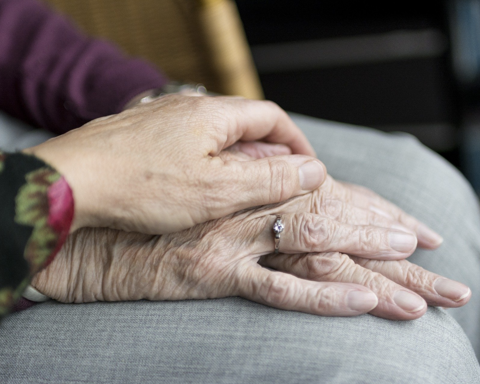Eight Reasons Why We Must Not Legalise ‘Assisted Dying’
Read in PDF1) It overturns a fundamental principle of law and medicine
‘Assisted dying’ [1] is the intentional ending of the life of a patient by a doctor (‘euthanasia’) or a patient ending their own life with a lethal drug supplied by a doctor for this purpose (‘assisted suicide’). These practices violate the prohibition of intentional killing, which is ‘the cornerstone of law and of social relationships. It protects each one of us impartially, embodying the belief that all are equal.’ [2] Euthanasia and assisted suicide remain illegal in most countries in the world, in most member-states of the European Union, and in most states of the United States. They also contradict a key principle of medical ethics, as witnessed as long ago as the Hippocratic Oath and recognised internationally by the World Medical Association. Doctors exist to protect life and health and to help improve the patient’s quality of life, not to put an end to it.
2) Changing the law changes things for everyone
It is sometimes thought that legalising assisted suicide or euthanasia only affects those few individuals who make use of the law, but the reality is that changing the law changes things for everyone. In particular, everyone who is eligible must now live with this as a possibility. Whether this option is reassuring or threatening, its continual presence makes a difference. Some will feel that, once eligible, they have to justify their existence and are no longer able simply to be alive ‘by default’. Assisted suicide and euthanasia are not isolated individual acts. They are social practices which have a great impact on health and social care. For example, in Canada doctors now have an obligation to inform patients if they are eligible for ‘medical assistance in dying’ (MAiD). Patients who have asked for particular medical or social support have had this refused and then have been offered MAiD without having asked for it! The possibility of this offer changes the nature of the doctor-patient relationship. [3]
3) People feel pressure to end their lives because they feel they are a burden to others
The bioethicist Nicholas Tonti-Filippini once warned that, ‘fear of being a burden is a major risk to the survival of those [of us] who are chronically ill.’ When the law changes, the evidence is that such feelings become more common. In Oregon those dying in part because of fear of being a ‘burden on family, friends / caregivers’ increased from 13% in 1998 to 54.2% in 2021. In Washington it rose from 23% in 2009 to 59% in 2022. The law implicitly promotes this attitude. Certainly many people now seek assisted death for this reason. Rarely is this reasoning overtly defended but in March 2024 the former Conservative MP Matthew Parris argued that assisted suicide was needed because society ‘simply cannot afford’ the burden of caring for older people. ‘“Your time is up” will never be an order, but — yes, the objectors are right — may one day be the kind of unspoken hint that everybody understands.’ [4]
4) It normalises taking your own life for some categories of people
When we think of conventional (‘unassisted’) suicide we often think of a physically healthy but mentally distressed young person. This is very different from a typical assisted suicide: an older person with an incurable illness, but assisted and unassisted suicide are not always so different. People who attempt suicide may be older or have an incurable illness. In Canada, people in this category who have attempted suicide, have then been offered MAiD as an alternative. Legalising assisted suicide undermines the imperative of suicide prevention, the fundamental belief that ‘every suicide is a tragedy’. [5] A change in the law is associated with significant increases in conventional suicide in the population (6% overall and 13% among women) and a still greater increase in self-initiated deaths (assisted plus unassisted suicides). We need to think how better to prevent suicide among people with serious physical diseases, but the evidence is that legalising assisted suicide makes things worse. [6]
5) Once legalised the practice expands far beyond what was originally intended
‘Assisted dying’ tends to expand in numbers (Canada, which legalised MAiD in 2016, recorded 13,241 assisted deaths in 2022). It also expands in eligibility criteria. In Belgium originally it applied only to adults, this restriction was abandoned in 2014. In the Netherlands, doctors were at first required to inform patients of the timing of the euthanasia, but in 2019 a court case approved the euthanasia of someone with dementia who could not be informed or consent and who had to be restrained for the lethal injection. In Canada, at first death had to be ‘reasonably foreseeable’, this was abandoned in 2021. In Colombia at first the patient had to be ‘in the terminal phase’, this also was abandoned in 2021. In Oregon assisted suicide is only for terminal illness, but in 2021 this was deemed to include anorexia. [7] Also in Oregon, the residency requirement was abandoned in 2022. Law and practice expand because of the logic of ‘assisted dying’. If intentionally ending life on request is the ultimate means to end human suffering then it should expand to reach all those whose suffering could be ended.
6) It jeopardises funding and provision of palliative care
In 2024, a House of Commons Committee ‘did not see’ evidence of palliative care ‘deteriorating’ after a change in the law but, at least in some places, ‘an improvement in palliative care’. [8] This conclusion relied, however, on partial and prospective evidence. Belgium increased palliative care provision from 2002 to 2011, but since 2012 it has fallen behind non-euthanasia countries (see also here). In 2017, Canada promised $6 billion to palliative care over ten years, but after 5 years it had spent only a fraction of this. In 2022, New South Wales promised $743 million over 5 years but in 2023 the annual palliative care budget was cut by $249 million. Promises are not evidence.
Palliative care aims to improve pain relief, but in Oregon, those seeking assisted death because of pain has increased from 7% in 1998 to 34.3% in 2023, and in Washington from 25% in 2009 to 46% in 2022, and in Canada from 53.9% in 2019 to 59.2% in 2022. Paradoxically, an increase in ‘assisted deaths’ is linked to an increase in pain or fear of pain.
Expecting palliative care services to deliver ‘assisted dying’ has also caused moral distress and has led people to consider leaving the profession. In Canada it has caused legal disputes and the closure of at least one hospice. Legalising euthanasia or assisted suicide is strongly opposed by the Association of Palliative Medicine.
7) It would be all the more dangerous given the state of the NHS and social care
Some reasons for opposing assisted suicide and euthanasia are inherent, other reasons concern circumstances and consequences. Someone who believed that ‘assisted dying’ was ethically acceptable in principle, might still think that, to be implemented safely, certain circumstances must be in place. If people are offered provision of lethal drugs within days but have to wait months for the health and social care they needed, or are even refused this care, assisted suicide is not what Health Secretary Wes Streeting calls ‘a real choice’. Consider MAiD in Canada, some people are choosing to end their lives only because they cannot afford to live or feel they have no other options.
Palliative care in the United Kingdom has been world-leading but is currently struggling financially and hospice beds are being closed. More generally, the National Health Service and social care are failing to address urgent needs. The Government argues that the NHS is ‘broken’ due to action and inaction by previous Governments over many years and there is no quick fix. The experience of the Liverpool Care Pathway shows that a form of end-of-life care, even if good in principle, if it is applied where ‘care is already poor’ can cause further harm. Even if assisted suicide is thought a good idea in principle, it cannot be implemented safely until the state of the NHS and social care have been improved substantially.
8) It is a greater threat to those who already face discrimination
People with disabilities have divergent views on assisted suicide. Nevertheless, many are opposed precisely because of their own experience. In Liz Carr’s documentary ‘Better Off Dead’ (available via Not Dead Yet, UK) a succession of disabled people recount having been told by others that, ‘if my life was like yours then I’d want to kill myself’. Even if a Bill were restricted to people with terminal illness, and even if we had confidence that this restriction would not be abandoned in future, someone with a terminal illness may also have a disability and thus face prejudice or discrimination because of their disability.
In a recent national poll [9], people were asked ‘Would you want your MP to vote for or against legislation to make assisted dying legal in the UK?’ Only 43% of people said ‘vote for’. In no area of the country or major demographic was it more than 50%. Interestingly, support was slightly higher among people who worked in the NHS (49%) but lower among people with life-limiting or terminal illness (41%). Similarly, It was slightly higher among White British (46%) but much lower among Asian British (24%) and Black British (24%). Those who have experienced discrimination in access to healthcare can see the dangers more clearly. With assisted suicide, entrenched discrimination can have lethal consequences.
David Albert Jones
October 2024
[1] On problems with the term ‘assisted dying’, see D.A. Jones, Defining the Terms of the Debate: Euthanasia and Euphemism, Anscombe Bioethics Centre (October 2021).
[2] Report of the Select Committee on Medical Ethics (HL Paper 21-I of 1993-94), paragraph 237. See also L. Gormally, Euthanasia and Assisted Suicide: Seven Reasons Why They Should Not Be Legalised, Linacre Centre for Healthcare Ethics (1997); J. Keown, Physician-Assisted Suicide: Improving the Quality of the Debate, Policy Exchange (2023).
[3] See J. Hughes, I. Finlay (eds.), The Reality of Assisted Dying: Understanding the Issue. Open University Press (2024), for discussion of this and other aspects.
[4] M. Parris, ‘We Can’t Afford a Taboo on Assisted Dying’, The Times (29 March 2024). Similar remarks were previously made by Baroness Mary Warnock – see S. Doughty ‘Old people with dementia have a duty to die and should be pushed towards death, says Baroness Warnock’, Daily Mail (20 September 2008).
[5] World Health Organisation, Preventing suicide: A global imperative. Geneva: WHO (2014), page 2.
[6] D.A. Jones, Suicide Prevention: Does Legalising Assisted Suicide Make Things Better Or Worse?, Anscombe Bioethics Centre (2022). See P. Casey, interview with A. Doherty: ‘Does Assisted Suicide Influence the Rate of Non-Assisted Suicide?’.
[7] Oregon Death with Dignity Act 2021 Data Summary, page 14, footnote 3. See also C. Roff and C. Cook-Cottone, ‘Assisted death in eating disorders: a systematic review of cases and clinical rationales’, Frontiers in Psychiatry, 15 (2024) 1431771.
[8] House of Commons Health and Social Care Committee, Assisted Dying / Assisted Suicide. Second Report of Session 2023–24, paragraph 142.
[9] Opinium UK25298 – Dignity in Dying – Nationally Representative Table (12 March 2024), question 2.
See here for more resources on euthanasia and assisted suicide from the Anscombe Bioethics Centre, including:
- The full Guide to the current Evidence;
- Our full playlist of videos on YouTube.
See also resources from other organisations:
- Care Not Killing
- Living and Dying Well
- CBCEW page on Opposing Assisted Suicide
- Not Dead Yet UK
- BBC Documentary by Liz Carr: Better Off Dead?
Most recent
Euthanasia & Assisted Suicide: Writing or Speaking to your Elected Representative
25 October 2024
A Guide on how to write to write to your MP (if resident in the UK, Deputy (if in Ireland), or MSP (...
Anscombe Centre Briefing – Consultation on Assisted Suicide in Scotland
17 July 2024
Our Guide to the 07 June 2024 to 16 August 2024 Scottish Consultation on the Assisted Dying for Term...
Dignitas Infinita’s Vital Contribution to Current Debates
26 April 2024
Dr Mehmet Çiftçi, Public Bioethics Fellow of the Anscombe Bioethics Centre, reflects on the importan...
Sincerest Thanks for Your Support
Staff are grateful to all those who sustained the Centre in the past by their prayers and the generous financial support from trusts, organisations, communities and especially from individual donors, including the core funding that came through the Day for Life fund and so from the generosity of many thousands of parishioners. We would finally like to acknowledge the support the Centre has received from the Catholic community in Ireland, especially during the pandemic when second collections were not possible.
We would like to emphasise that, though the Centre is now closed, these donations have not been wasted but have helped educate and support generations of conscientious healthcare professionals, clerics, and lay people over almost 50 years. This support has also helped prevent repeated attempts to legalise euthanasia or assisted suicide in Britain and Ireland from 1993 till the end of the Centre’s work on 31 July 2025.



